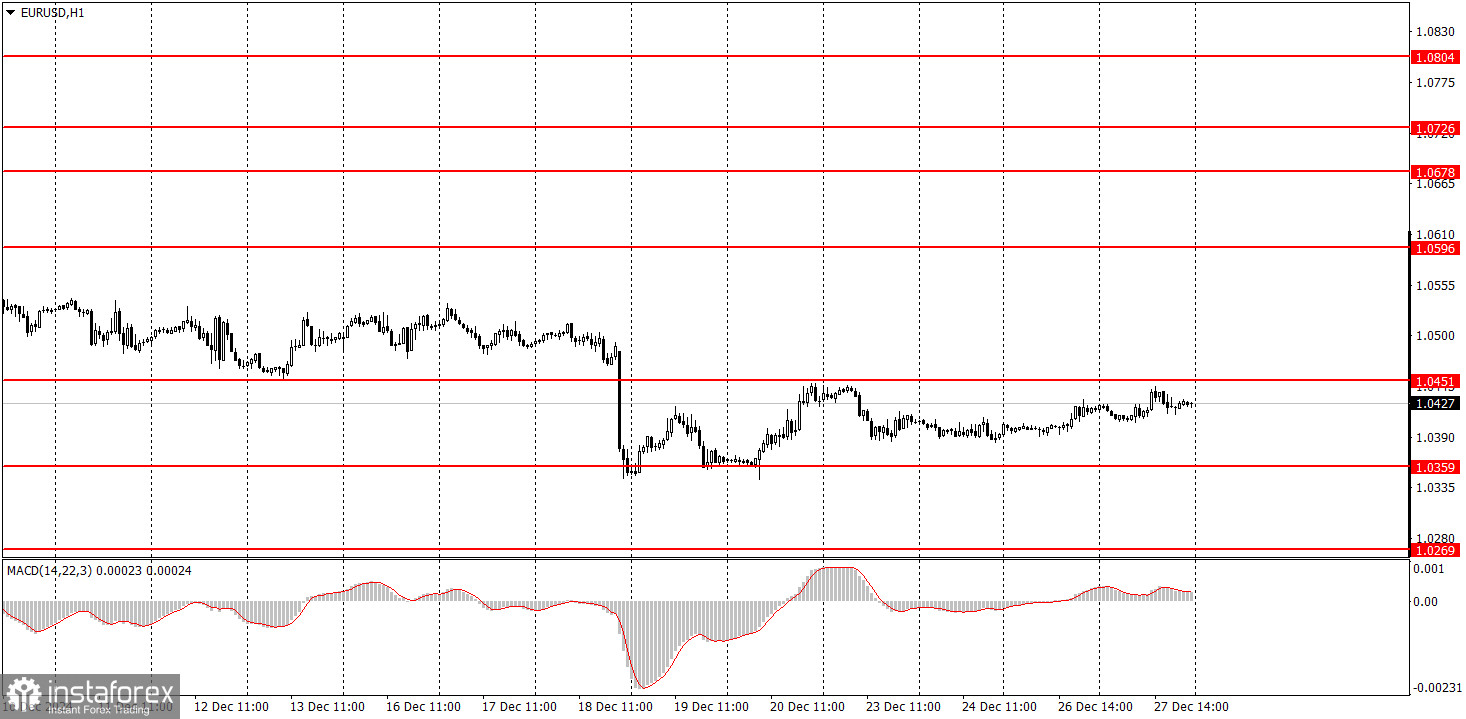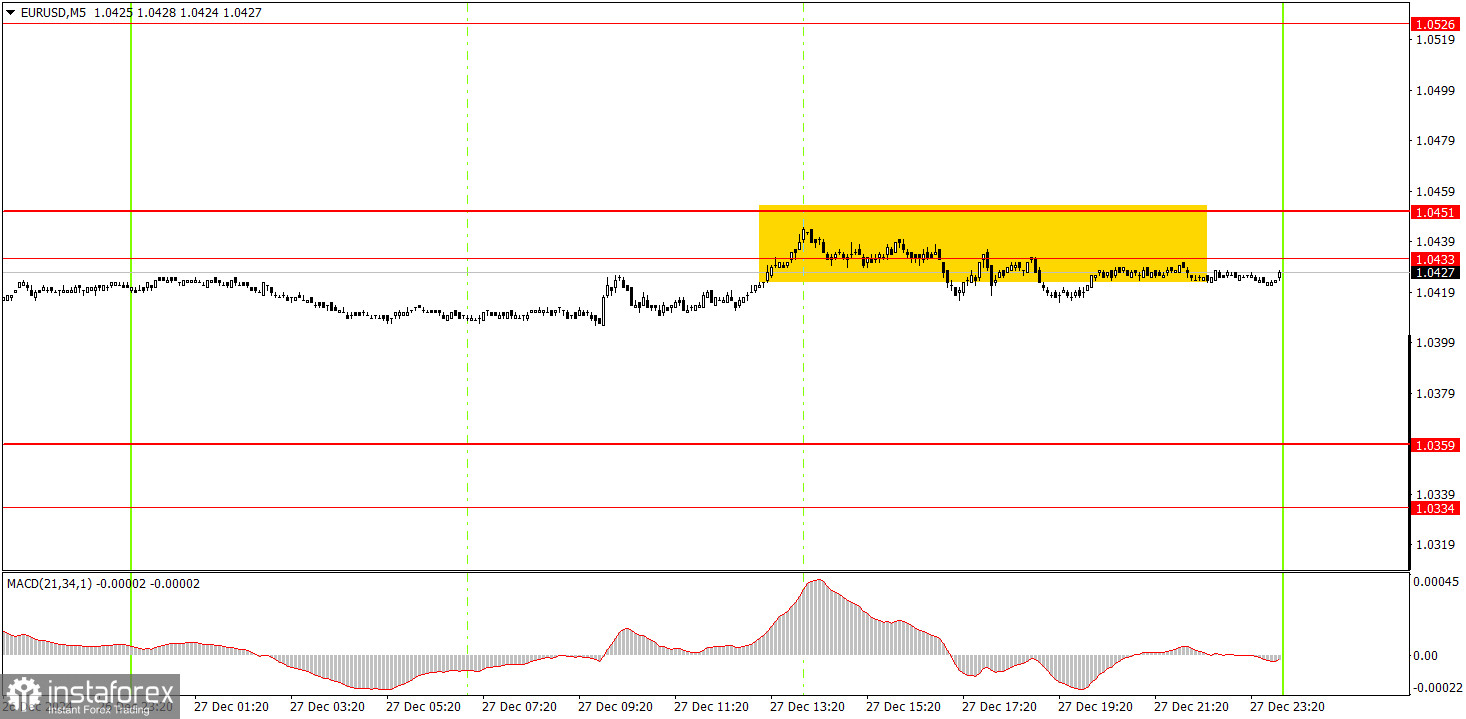Analysis of Friday's Trades
1H Chart of EUR/USD

On Friday, the EUR/USD pair exhibited low volatility, essentially moving sideways. As a result, there is nothing significant to analyze. The market is currently experiencing a holiday lull, with no macroeconomic releases or major events to consider. The best course of action in this situation is to wait for the New Year flat to conclude. Alternatively, one could trade on higher timeframes, where the current market conditions may not appear flat. However, in this case, trades would need to be held for at least a week.
5M Chart of EUR/USD

On the 5-minute timeframe on Friday, no trading signals were generated. The price returned to the range of 1.0433–1.0451 during the day, forming a second minor bounce. Opening a trade in such a low-volatility market, just before the close on Friday, was clearly not the best decision.
Trading Strategy for Monday:
On the hourly timeframe, the EUR/USD pair continues to trade within a narrow range, referred to as a "holiday flat." We believe that the pair's medium-term downtrend has resumed; however, most market participants are currently hesitant to open new trades, leading to stagnant prices. We expect the price to eventually return to the range of 1.0334–1.0359 under almost any scenario, although it may be necessary to wait until the new year for this to occur.
On Monday, the pair may attempt another decline toward the key area of 1.0334–1.0359. However, it is also possible that the market remains in a flat state or experiences very low volatility.
On the 5-minute timeframe, consider the following levels: 1.0269–1.0277, 1.0334–1.0359, 1.0433–1.0451, 1.0526, 1.0596, 1.0678, 1.0726–1.0733, 1.0797–1.0804, 1.0845–1.0851, and 1.0888–1.0896. No significant economic events or reports are scheduled in the Eurozone or the U.S. for Friday, which suggests that meaningful market movements are unlikely today.
Core Trading System Rules:
- Signal Strength: The shorter the time it takes for a signal to form (a rebound or breakout), the stronger the signal.
- False Signals: If two or more trades near a level result in false signals, subsequent signals from that level should be ignored.
- Flat Markets: In flat conditions, pairs may generate many false signals or none at all. It's better to stop trading at the first signs of a flat market.
- Trading Hours: Open trades between the start of the European session and the middle of the US session, then manually close all trades.
- MACD Signals: On the hourly timeframe, trade MACD signals only during periods of good volatility and a clear trend confirmed by trendlines or trend channels.
- Close Levels: If two levels are too close (5–20 pips apart), treat them as a support or resistance zone.
- Stop Loss: Set a Stop Loss to breakeven after the price moves 15 pips in the desired direction.
Key Chart Elements:
Support and Resistance Levels: These are target levels for opening or closing positions and can also serve as points for placing Take Profit orders.
Red Lines: Channels or trendlines indicating the current trend and the preferred direction for trading.
MACD Indicator (14,22,3): A histogram and signal line used as a supplementary source of trading signals.
Important Events and Reports: Found in the economic calendar, these can heavily influence price movements. Exercise caution or exit the market during their release to avoid sharp reversals.
Forex trading beginners should remember that not every trade will be profitable. Developing a clear strategy and practicing proper money management are essential for long-term trading success.





















